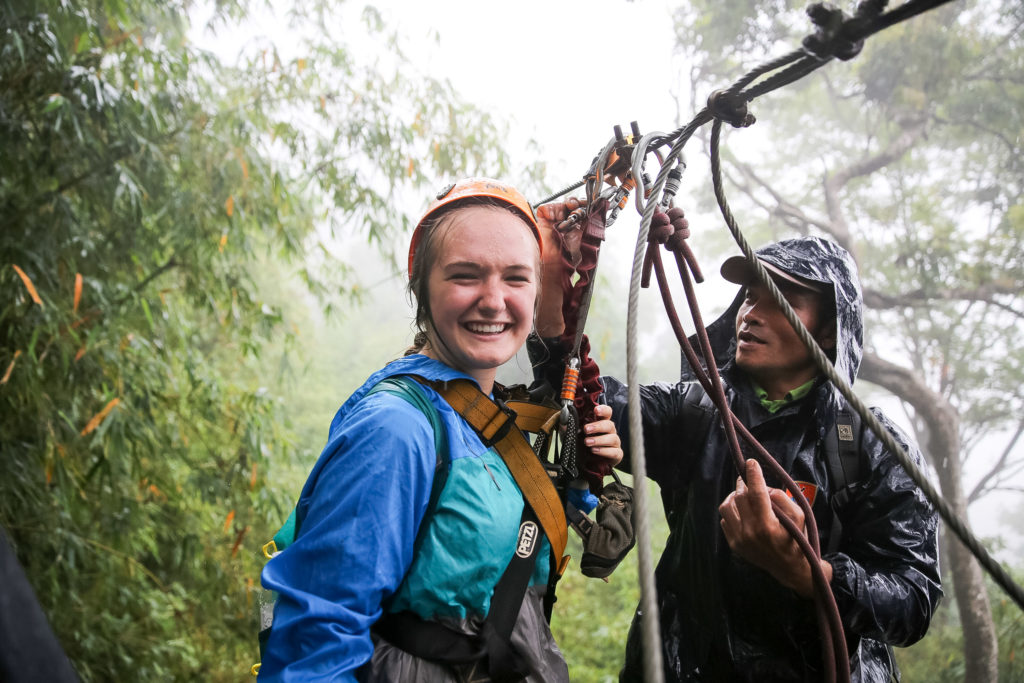Allowing – and even helping – students to develop a non-traditional path to follow after high school graduation is hard, even for parents of responsible children. Even for college admission consultants. I was both.
Thirteen years ago, my son Ben wanted to hit the pause button before beginning college. The consultant in me told him, “Okay, then, first get yourself admitted to college, plan the year to have a beginning, middle, and end, and then start college the following fall.” I knew that students who traveled before starting college had a much higher rate of college completion than those who didn’t. They also were more likely to finish college in four years. Hence, colleges like admitting students who arrive on campus a bit more seasoned. And the benefit for parents is that paying for college will present no surprises of tuition payments extending to five or six years. Their students will be more focused and know why they are there. Still, the Mom in me didn’t realize the letting go part would start so soon, and tug at the heartstrings so much.
Ben complied with each of these steps. He earned half of his costs for the first part of his year, hiking the entire Appalachian Trail. We paid for the other half. He later worked at the outdoor company, REI (what better job for an experienced through-hiker?) so he could afford to travel to South America and teach English to little kids. His finale of his year was to work another season at his beloved summer camp. And then, poof, it was September, and he did enroll in college, finishing in four years as planned.

Were there bumps along the way? Of course. When you hike the Appalachian Trail from north to south, there is a ten-day stretch of hiking called the Hundred Mile Wood. No phone, no contact with parents. And it was also Maine black fly season. Ben’s friend and co-conspirator in their hike turned out to be a magnet for every stinging and biting bug around, and he emerged from the first stretch of wilderness covered in red bites and welts. At the first chance, his friend aborted the plan and left for New Jersey. When Ben came out of the Woods and phoned that his buddy had left, my first reaction was, “So — you’re coming home, right?” But Ben had already learned about meeting fellow hikers and flip-flopping on and off the trail for supplies, and meeting up with new hiking friends. He said he was fine and was continuing on his own. So much for parental advice or knee-jerk reactions.
Hence, colleges like admitting students who arrive on campus a bit more seasoned. And the benefit for parents is that paying for college will present no surprises of tuition payments extending to five or six years.
Another time, Ben took a bus from Peru to Bolivia, but had no visa for Bolivia. Somehow he left his camera hostage with the local police who had detained him, got “fine money” in local currency, and then retrieved his camera. But he should never have gotten into Bolivia, and luckily, we didn’t know any of this until Ben returned. It’s sort of nice when your kids protect you from worry, especially when they are able to be resourceful in solving the problems they get themselves into.
Fast forward sixteen years. Ben is now Co-founder and COO of Verto Education, and he and his partner, Mitch Gordon have built a better mousetrap. Verto provides not only an organized and supervised educational and travel experience, but also offers college credit which is transferrable to more than sixty partner universities and colleges. Students enter college already having completed their first semester or academic year without missing a beat. Verto costs less than most private colleges and universities, too. And Verto accepts the FAFSA for financial aid consideration.
Verto provides not only an organized and supervised educational and travel experience, but also offers college credit which is transferrable to more than twenty partner universities and colleges.
Never before has there been an opportunity for students to travel the world in a safe environment, developing deep friendships, preparing for college, and staying on track to graduate in four years. Some students, like Ben, thrive on the unknown and getting lost in another country. If you can afford to take a year off and trust your student to make good choices halfway around the world, gap years are a great option with proven positive outcomes. However, most students benefit from learning to travel in an environment that will spark their curiosity, while ensuring their safety. Taking their first semester of college abroad gives students the adventure they want, and parents the peace of mind they need.
If you have been reluctant to consider alternatives to college immediately after high school, know that there are many options and that positive outcomes abound. Ben is my proof of that, and I suggest you contact him for more information.


